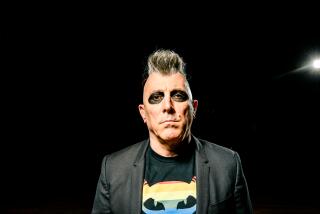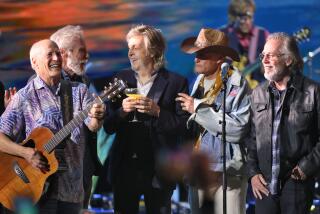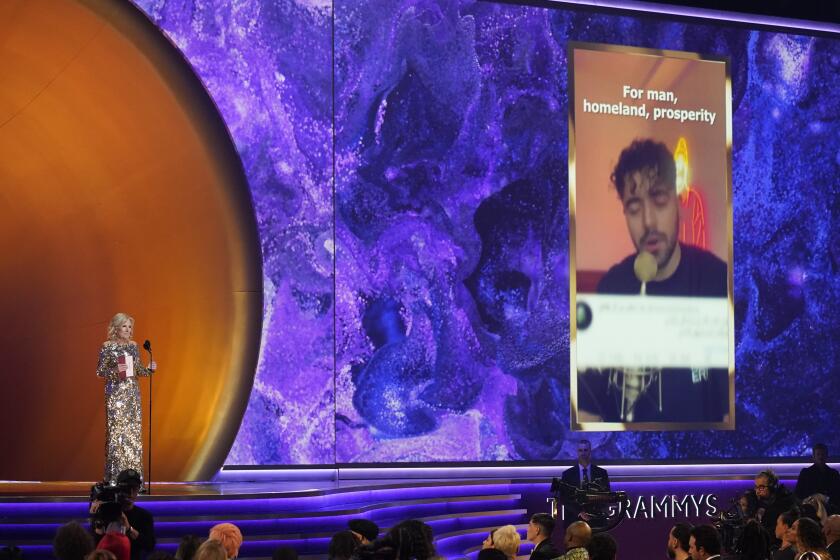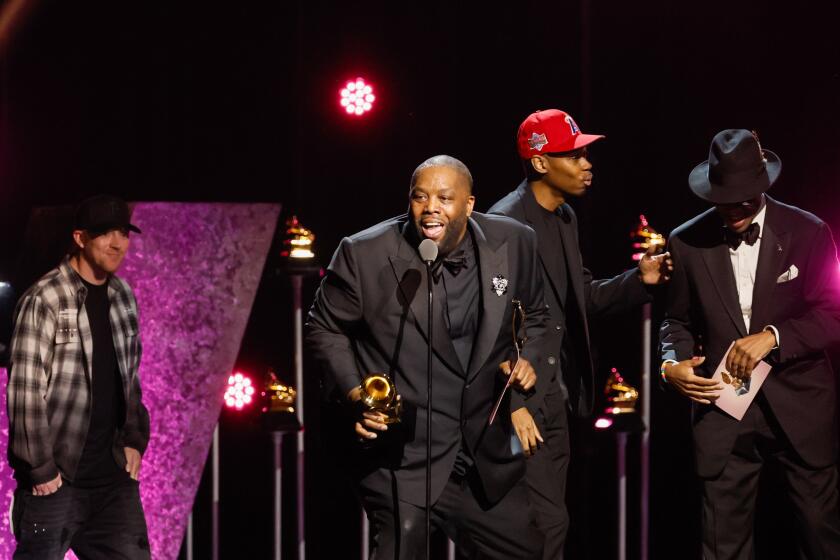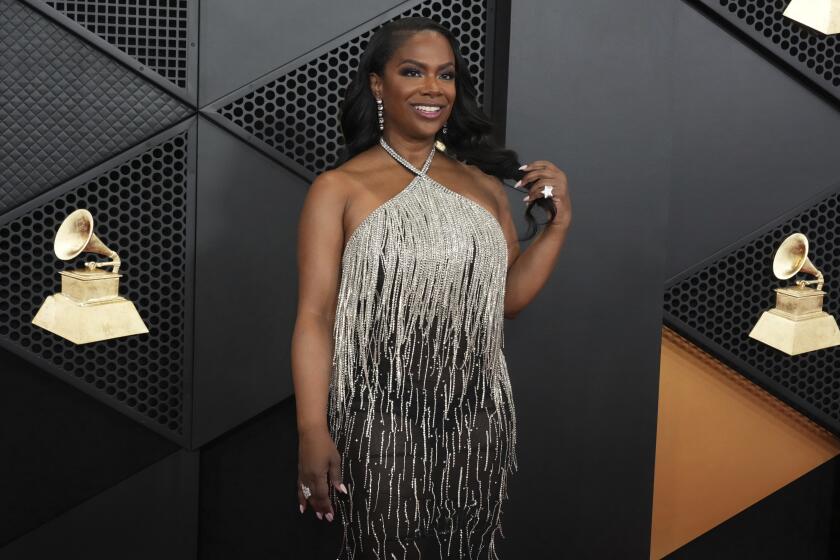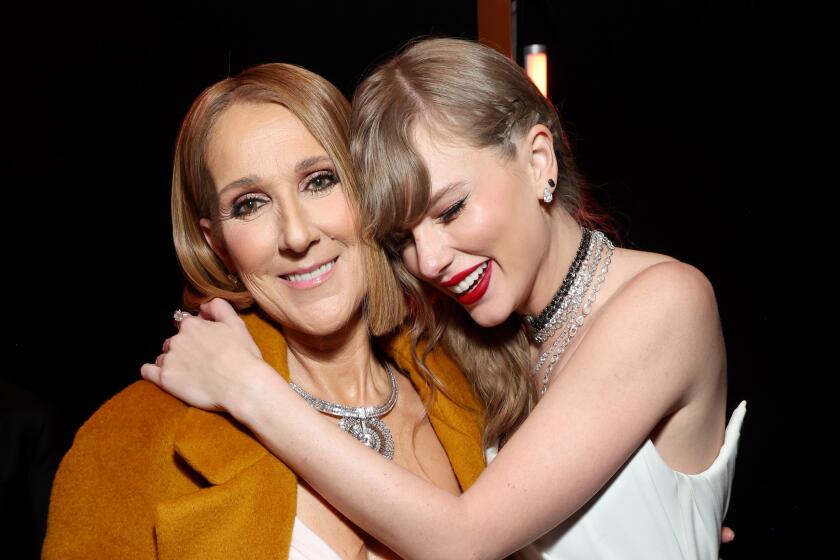Enough glitter for the gold?
Ryan Seacrest said it came down to “the guy-next-door versus the guyliner.” But just as they’ve been doing all season, Kris Allen and Adam Lambert kept subtly adjusting their stage personalities Tuesday night, making this last elimination round more up-to-date, fashion-wise: the battle of the trench coat versus the T-shirt and vest.
It was a fair match, with each singer connecting to his own muse -- Lambert’s glittery air sprite and Allen’s humble woodland spirit -- while fulfilling the requirements of an “Idol” season-topper. Each savored earlier breakthrough moments, hit high notes, and (barely) survived the “Idol” commissioned song that is supposed to serve as the winner’s first hit single, yet somehow rarely suits either finalist. (The less said about the unsingable “No Boundaries,” co- written by judge Kara DioGuardi, the better.)
Lambert and Allen’s initial sartorial decisions set the evening’s mood and said something about which strain of rock-era pop each means to reinvigorate. Taken as a whole, their performances reminded us that classic Hollywood glamour and family-style folksiness are both acts and both can be heartfelt.
Lambert sang first; he emerged from a vampirish fog in that black overcoat, cutting a figure both slightly menacing and supernatural. Singing “Mad World,” the New Wave ballad that had previously convinced many that a poetic soul lurked beneath his dandyish mop, Lambert claimed the judges’ season-long criticism that he’s “too theatrical” and threw it back at them -- on fire.
This is theater, his performance insisted. By showing how an enrapturing visual image and a powerfully thought out vocal approach can enhance the content of a song, Lambert made a final case for pop as a vehicle for shaking things up and playing out big dreams.
The judges responded so rapturously that Allen must have been tempted to hang up his acoustic guitar and head home. Instead, he put it down long enough to sit at the piano for “Ain’t No Sunshine,” the Bill Withers weeper that had helped him emerge from the pack by foregrounding his sincerity -- the quality that DioGuardi identified Tuesday as being able to make everyone in the room “feel like you’re singing it to us.”
This quality of artlessness, of course, also must be honed until it’s consistent and effective. In pop, it’s often equated with “authenticity,” Allen’s ace in the hole against the much more vocally gifted and charismatic Lambert. People identify with Allen, and his casual garb onstage always makes that easier. So does his pleasantly quavery voice.
In the second round, with songs chosen not by the strivers themselves but by “Idol” creator Simon Fuller, each had to stretch but maintained their authority.
Allen basically revisited his “Sunshine” approach, but with a guitar and a Marvin Gaye song -- “What’s Goin’ On.” The breezy performance was slightly overburdened by Allen’s melismatic rambling.
Then came Lambert, who faced a real challenge in Fuller’s choice: “A Change Is Gonna Come,” a song made holy both by its originator, Sam Cooke, and its association with the African American civil rights movement.
Oversinging this song is a risk, since Cooke’s pristine vocal is embedded in the collective psyche. But Lambert took that chance. He belted. He moaned. He squalled. He took that song to church.
“My change, my change is gonna come!” he cried out at the song’s end, pouring himself into the role the song offered him.
That was a statement of pride and self-assertion that qualified as its own victory. Even if Allen’s powerfully appealing authenticity wins the popular vote -- which it well could -- Lambert’s realness will stay with us for some time to come.
--
More to Read
The biggest entertainment stories
Get our big stories about Hollywood, film, television, music, arts, culture and more right in your inbox as soon as they publish.
You may occasionally receive promotional content from the Los Angeles Times.
